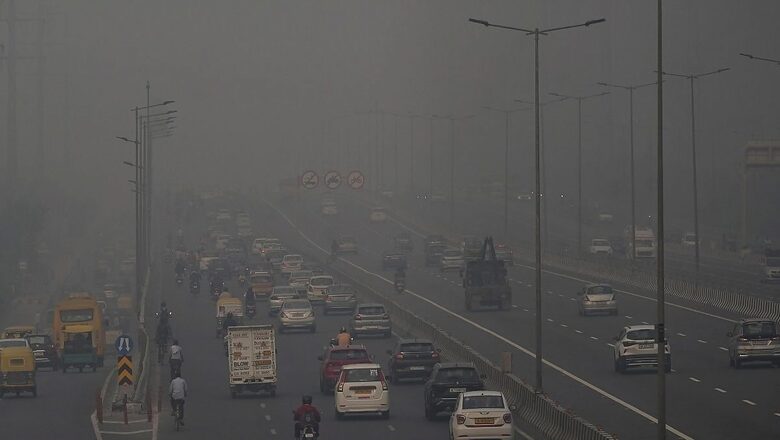
views
The air quality in the national capital has plunged to ‘severe’ levels for the first time this winter. According to the government’s early warning system, the Air Quality Index (AQI) breached the 400 mark on Thursday.
The AQI clocked 392 as per the daily bulletin provided by the Central Pollution Control Board (CPCB), but it declined sharply throughout the day, reaching 402 at 5 pm. There is no respite for the residents of Delhi as the air is expected to deteriorate further over the next few days due to unfavourable meteorological conditions.
The subcommittee of the Graded Response Action Plan (GRAP) has enforced its stage 3 with immediate effect in the entire National Capital Region (NCR). Apart from actions under GRAP 1 and GRAP 2, additional measures will now kick in across the city.
GRAP 3 ENFORCED, ADVISORY TO SCHOOLS
An eight-point action plan as per stage 3 of GRAP has come into immediate effect from Thursday in the entire NCR. The state governments of NCR states may impose strict restrictions on the plying of BS III petrol and BS IV diesel LMVs (four-wheelers) in Delhi and in the districts of Gurugram, Faridabad, Ghaziabad, and Gautam Budh Nagar. State governments in NCR will also issue an advisory to schools to consider discontinuing physical classes for children up to class 5 and conducting classes in an online mode.
Under GRAP 3, the frequency of mechanised/vacuum-based sweeping of roads will be intensified to ensure daily water sprinkling along with dust suppressants, before peak traffic hours, on roads and right of ways including hotspots, heavy traffic corridors, and ensure proper disposal of the collected dust in designated sites/landfills.
The government will also try to strengthen the public transport services and look at differential rates to encourage off-peak travel. There will also be a strict ban on construction and demolition activities in the entire NCR, except for certain exempted projects. Other than the projects exempted, dust-generating/air pollution-causing construction activities will be strictly banned during this period.
SHARP DROP IN VISIBILITY, HEALTH ALERT
A thick haze enveloped the national capital region on Thursday reducing visibility significantly during the evening hours despite clear skies. The wind speeds have also dropped creating conducive conditions for the pollutants to remain suspended in the air for a longer time.
According to the latest forecast of the Indian Institute of Tropical Meteorology (IITM), Pune, the AQI is likely to hover between very poor to severe over the coming days. Prolonged exposure to toxic air can have long-term effects on the health of the residents, but a severe AQI triggers health warnings, as people start experiencing respiratory issues.
Previous studies have shown that 40% of Delhi’s pollution is due to the vehicles plying across the national capital, which have increased significantly over the years. Starting November 1, the Delhi government has also barred the entry of diesel buses from neighbouring states into Delhi, allowing only electric, CNG, or BS-VI buses.
















Comments
0 comment